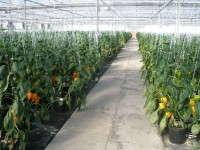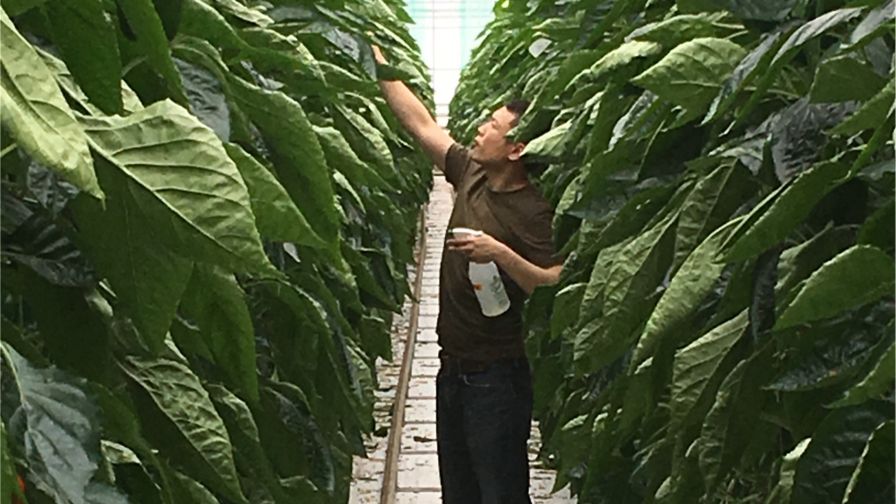Three Keys To Success In Greenhouse Vegetables

So – you are thinking about growing produce. I have worked with many growers both in the U.S. and Canada on incorporating vegetables into their greenhouse production over the years. Even as more growers become interested and the market gets more competitive, growers can still make good money for their products. In my experience, the keys to success in the greenhouse vegetable industry lie mainly in three factors: market know-how, and costs.
Understand The Market
Although I am based in Canada, the market for greenhouse vegetables here in Quebec is very similar to the market in the U.S. It boils down to a very few well-defined aspects.
The market looks for smaller, tastier and more practical fruits. There are multiple types of tomatoes, sweet peppers, cucumbers and lettuces that meet those desires, and many different containers and displays to gain consumers’ attention.
The demand for local fruits and vegetables and for organic vegetables are both more than temporary fads. The market continues to grow and these are business opportunities to take advantage of. The global demand for traditionally grown greenhouse vegetables – tomatoes, sweet peppers, cucumbers and lettuce is also increasing at retail and wholesale.
Whether they are grown hydroponically or organically, fewer traditional pesticides are being used to fight against diseases and insects in greenhouses. More attention is being paid by consumers as to how their food is grown and there is more desire for produce grown in more environmentally friendly ways. Biological control using predatory insects and useful parasitoids is routinely found everywhere now.
Know-How Is Needed
As greenhouse growers, you are very aware of the complexity involved in today’s new highly modern structures. Technical levels are very high and good skills are required if you want to keep production levels high and steady. New technologies change very rapidly and as soon as you sit on your knowledge, someone gets ahead of you!
Do not expect to simply add vegetables to your current ornamentals production systems and be successful. Many growers look to greenhouse vegetable experts and consultants to help them learn how to incorporate produce into their business. Education and training are the foremost advantages if you want to succeed, and practical experience acquired in greenhouse will be an advantage as well.
To improve the productivity and quality of greenhouse vegetable crops and enhance the profitability, expertise is necessary. You will have a learning curve as you get started. The science of growing is always on the move!
Manage Production Costs
Growing vegetables is like growing any other crop in the greenhouse. You will have to manage your costs closely to be profitable in this new market. This is particularly true as you experiment in learning to grow these new crops. You will need to be prepared to make many adjustments as you find what crops and techniques work best for you.
As it is for growers everywhere, energy costs are one of the biggest expenses for growers here in Quebec and can reach up to 15% to 30% of the total expenses in the farm. Greenhouse vegetable growers here have looked for new ways to get reasonable prices for their greenhouse heating and many are looking to biomass, particularly wood as a secondary product from sawmills. The cost of this new energy can be favorable when compared to other energy sources like natural gas or oil-derived products.
You will certainly need to find answers to many new questions before making the decision to try growing greenhouse vegetables as a part of your production mix. However, with the right information in hand, this can be a successful and profitable crop for you.








